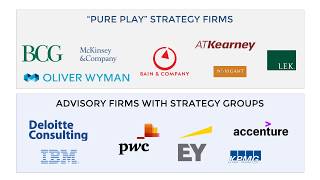
Understanding and measuring your employees' skills is key to managing human capital. Your business can use these skills to develop a pay incentive system that is more aligned between salaries and skill sets. You can avoid high turnover rates by creating a pay-for skills system. Employees will be encouraged to improve their core competencies and supported by the employer. This will increase their satisfaction and help them stay longer in the company.
Employee engagement
Engaging employees is an essential component in managing human capital. This includes giving employees meaningful feedback as well as giving them a sense and purpose. It also involves providing them with a voice and the opportunity to voice their ideas and concerns. Managers should regularly communicate with staff to understand their concerns, and provide feedback.
Employee turnover can be a major factor in a company's productivity. According to a Gallup study, millennial turnover costs organizations $30.5 billion annually. Engaged workforce are happier at work and more likely to stay where they are.
Performance management
Human capital performance management aims to align the strategy of an organization with its employees' performance. It involves setting goals and objectives and ensuring that everyone works in the same direction. It also involves setting and monitoring individual performance goals, as well determining compensation. Performance management is also about identifying and developing key talent and high-potential employees. This approach can also be used to hire and fire, evaluate performance, and identify training needs.

The best performance management system will integrate performance improvement and employee engagement and ensure that employees feel committed to learning and development. Microsoft's Gamification Program for Call-Center Agents is an example of this. The goal is for employees to have the knowledge and skills required to fulfill their role. Performance management should be integrated into the employee development program in order to achieve success.
Compensation
If you want to attract the right talent, compensation is key. It is important to remember that compensation does not only have to be about money, but how employees are motivated. A solid compensation management system will help a company retain top talent, motivate employees, and attract new talent. A company's productivity and revenue can be increased by selecting the right compensation.
Compensation management aims to ensure that the benefits and salaries offered are fair and appropriate for current workers. This involves analyzing employment data and keeping up to date on complex benefits administration rules. While compensation is important it is equally important that employees are paid properly and on-time.
Pay-for-performance
Pay-forperformance is a great method to motivate and retain your employees. This model gives employees the opportunity to raise their salaries by setting goals. This model can also be used to help you hire better-skilled workers. This type of compensation may not be right for all companies, but it can be a motivator to top performers to stay.
It is vital to ensure that the CEO, HR and other departments are fully committed when implementing pay for performance. When top management gets behind the concept, middle management is more likely to follow suit.

Learning
Employers can increase the value of their employees by using learning in human capital management. You can use learning to improve your organization's productivity, whether you are looking for new employees or those who are already there. Understanding industry trends and identifying the needs of your employees is one of the best ways to increase your human capital.
Your employees can learn from you. Employees will feel more confident in their work if they have the right training. Employees who feel confident in their jobs will perform better.
FAQ
What is the difference of a consultant versus an advisor?
An advisor gives information on a topic. Consultants offer solutions to problems.
A consultant works directly with clients to help them achieve their goals. Clients are referred to advisors through books, magazines and lectures.
What industries employ consultants?
There are many types. Some are specialists in one type or another of business.
Some consultants work exclusively for private businesses, while others represent large corporations.
Many consultants also work internationally to assist companies from all corners of the globe.
Who hires consultants
Many companies hire consultants to help with their projects. These can include small businesses and large corporations, government agencies as well non-profits and educational institutions.
While some consultants work for these companies, others are freelancers. In both cases, the process for hiring depends on how complex and large the project is.
Many rounds of interviews are required when hiring consultants. Then, the final decision will be made about who you believe is best for the job.
What are the benefits of being a consultant
Consultants often have the option to choose when and what they do.
This allows you the freedom to work wherever you like, whenever you want.
You also have the freedom to change your mind at any time without fearing losing your money.
Finally, you can control your income and set your own schedule.
Is it possible that a consultant business can be started from home?
Absolutely! Indeed, many consultants already do this.
Freelancers often work remotely through tools like Skype and Trello, Basecamp, Basecamp, Dropbox, and Slack. Many freelancers set up their own office space to avoid missing out on company perks.
Freelancers may prefer to work in libraries or cafes rather than in traditional offices.
Some choose to work remotely because they are surrounded by their family.
Although working from home is a great option, there are some downsides. But if you love your job, it's definitely worth considering.
How do I choose a consultant?
Three main factors should be considered:
-
Experience - How many years of experience is this consultant? Is she an expert, beginner, intermediate or advanced consultant? Do her qualifications and knowledge show on her resume?
-
Education - What did he/she learn in school? Did he/she take any relevant courses after graduating? Are we able to see evidence of his/her learning through the way he/she writes
-
Personality - How do we feel about this person? Would we hire him/her to be our employee?
-
These questions help to decide if the consultant suits our needs. If you do not have the answer, it is worth interviewing the candidate to find out more.
How long does a consultant take?
Depending on your industry and background, the time required will vary. Most people start with just a few months of work before finding employment.
However, some consultants spend several years honing their skills before finding work.
Statistics
- 67% of consultants start their consulting businesses after quitting their jobs, while 33% start while they're still at their jobs. (consultingsuccess.com)
- Over 50% of consultants get their first consulting client through a referral from their network. (consultingsuccess.com)
- So, if you help your clients increase their sales by 33%, then use a word like “revolution” instead of “increase.” (consultingsuccess.com)
- Over 62% of consultants were dissatisfied with their former jobs before starting their consulting business. (consultingsuccess.com)
- According to statistics from the ONS, the UK has around 300,000 consultants, of which around 63,000 professionals work as management consultants. (consultancy.uk)
External Links
How To
What should I do to get started with a consulting business?
A consulting business is a great way of making money online. No prior business experience is required. It is possible to create a website to launch your consulting business. Once you have a website built, you can start using social media platforms such Instagram and Pinterest to spread the word about you services.
You can use these tools to put together a plan for marketing that includes:
-
Create content (blogs).
-
Building relationships (contacts).
-
Generating leads (lead generation forms)
-
Selling products online
Once your marketing strategy is developed, you need to find clients willing and able to pay for your services. While some people prefer to attend networking events and groups, others prefer online methods like Craigslist, Wikijiji, or Kijiji. Your choice is yours.
Once you have found clients, you should discuss terms and payment options. This could include flat fee contracts, hourly fees or retainer agreements. Before you accept a client, you need to know what you expect so that you can communicate clearly all through the process.
The most common type of contract for a consultancy service is an hourly agreement. This contract allows you to pay a fixed amount each week or month for certain services. You may be eligible to negotiate a discount, depending on the service that you offer. Before you sign a contract, ensure you understand everything.
Next, you will need to create invoices that you can send to your clients. Invoicing is one of those things that seems simple until you actually try it. You have many options to invoice your clients. For example, some people prefer to have their invoices emailed directly to their clients, while others print hard copies and mail them. Whatever method you choose, make sure it works for you!
Once you have completed creating invoices you will want to collect payment. PayPal is the most popular payment option because it's easy to use and provides multiple payment options. Other payment processors, like Square Cash or Google Wallet, Square Cash or Apple Pay, Venmo and Venmo are also available.
Once you're ready to begin collecting payments, you'll want to set up bank accounts. You can track income and expenses separately by having separate savings and checking accounts. Setting up automatic transfers into your bank account is also helpful when paying bills.
When you start a consultancy business, it may seem overwhelming, but once you learn how to do it correctly, it becomes second nature. This blog post will provide more information about starting your own consultancy business.
Starting a consulting firm is a great way to earn extra cash without worrying about employees. Remote consultants don't need to be tied down by office politics or work long hours. Because you don't have to work a set number of hours per week, you can be more flexible than a traditional employee.